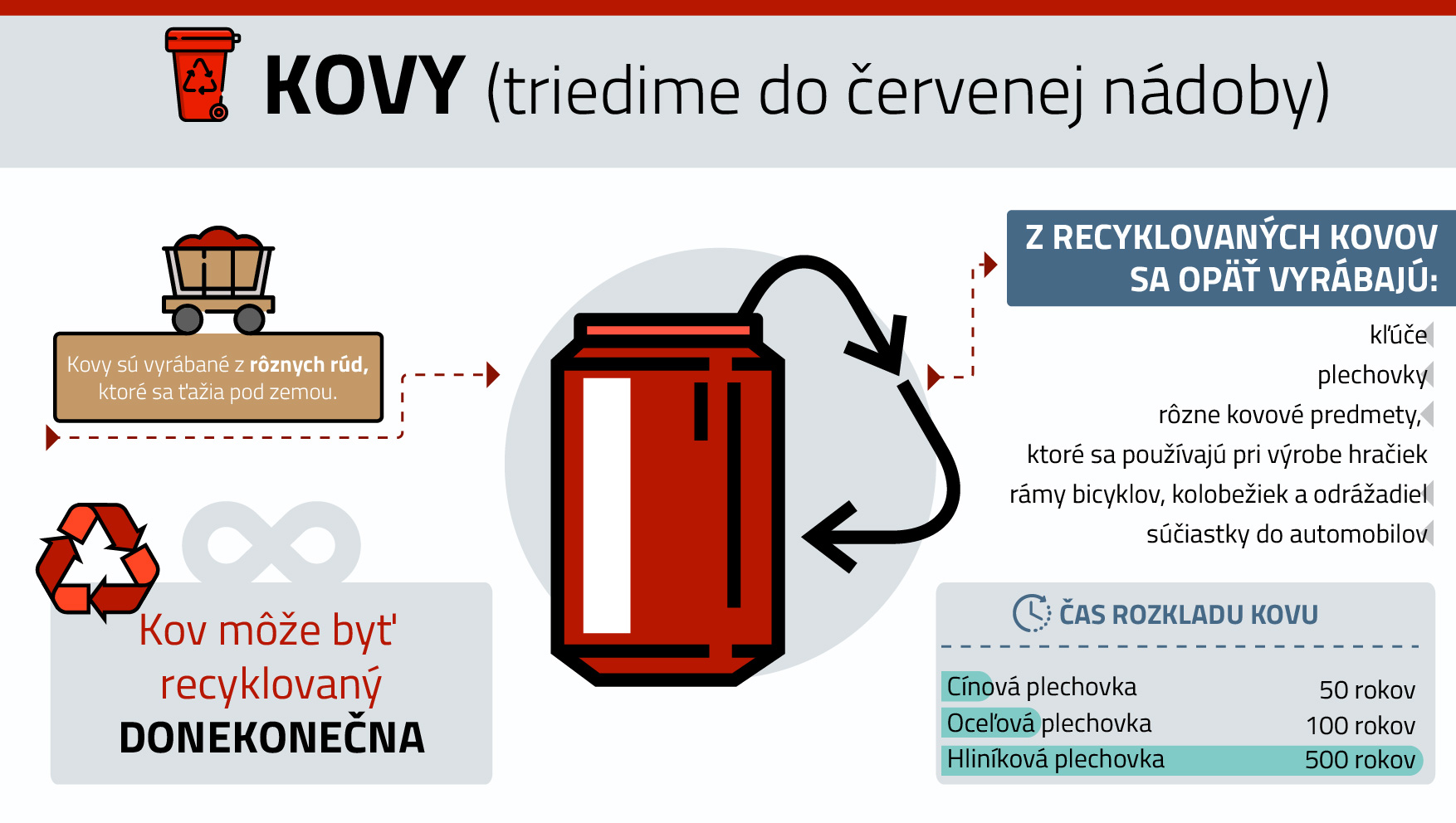This website uses cookies so that we can provide you with the best user experience possible. Cookie information is stored in your browser and performs functions such as recognising you when you return to our website and helping our team to understand which sections of the website you find most interesting and useful.
- Electrical equipment
- Batteries
- Plastics
- Paper
- Glass
- Metals
Electrical equipment
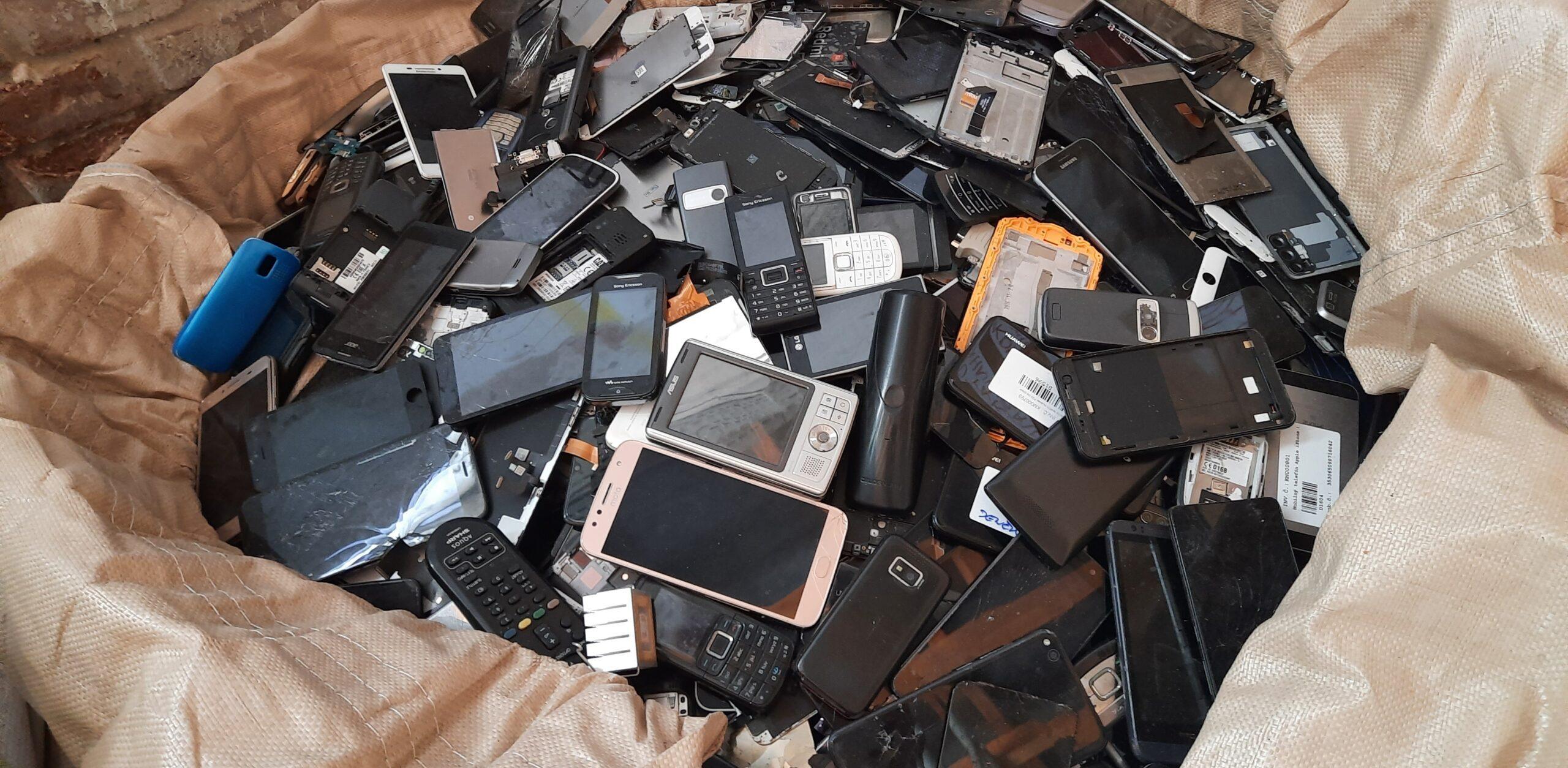
Old and non-functioning electrical equipment are an important source of materials from which secondary raw materials are produced by recycling.
E-waste does not belong in the containers intended for mixed municipal waste, as the e-waste that is found in them mostly goes to the landfill. Due to the weather, hazardous and toxic substances are released from e-waste, which subsequently contaminate the soil, groundwater and air.
Residents can take very small electronic waste (outer dimensions of the appliance up to 25 cm) to the nearest electrical waste store, without the obligation to buy a new appliance. Most stores have a container for old electrical appliances at the entrance.
The second option is to hand over the old device to the seller free of charge when buying a new electrical appliance.
The last option is to take electronic waste to the collection yard at your place of residence.
All old electrical equipment that ends up in the right place goes to recycling plants, where they are made into secondary raw materials. Semi-finished products or new products are made from them. It is therefore not necessary, e.g. extraction of mineral raw materials, the surrounding nature is not devastated and the environment is protected.
Companies, institutions, schools, hospitals and municipalities from all over Slovakia can get rid of electrical waste free of charge.
We will also send sports equipment to schools and educational institutions.

Batteries
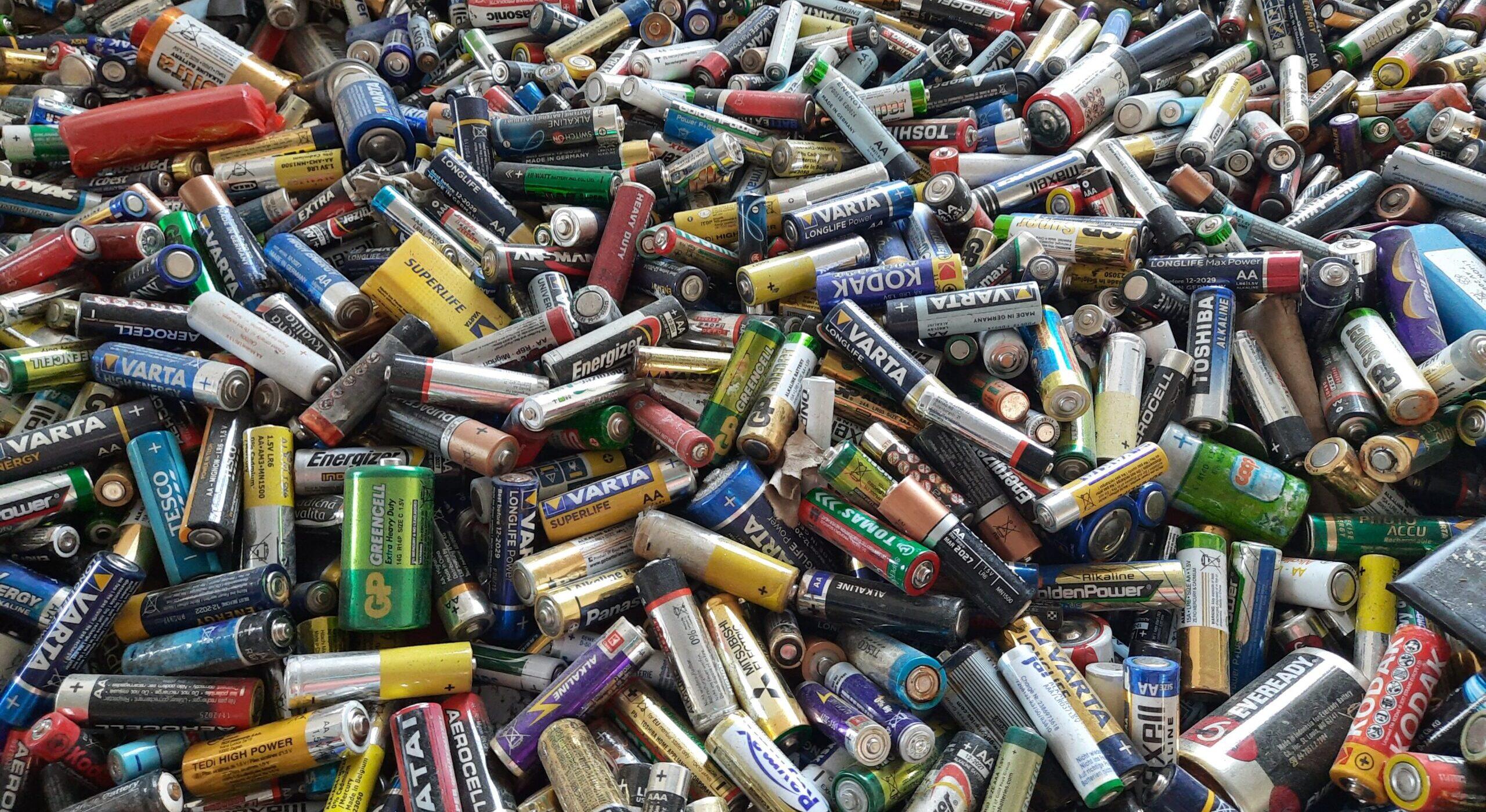
Batteries contain many heavy metals (lead, cadmium, nickel). If these toxic substances are released into the soil and groundwater, they threaten human health and damage the ecosystem.
Used batteries can be handed in at any store that sells new batteries. There are collection containers in them, where you just need to dump the used batteries.
Old batteries and accumulators can also be handed over to the collection yard at your place of residence.
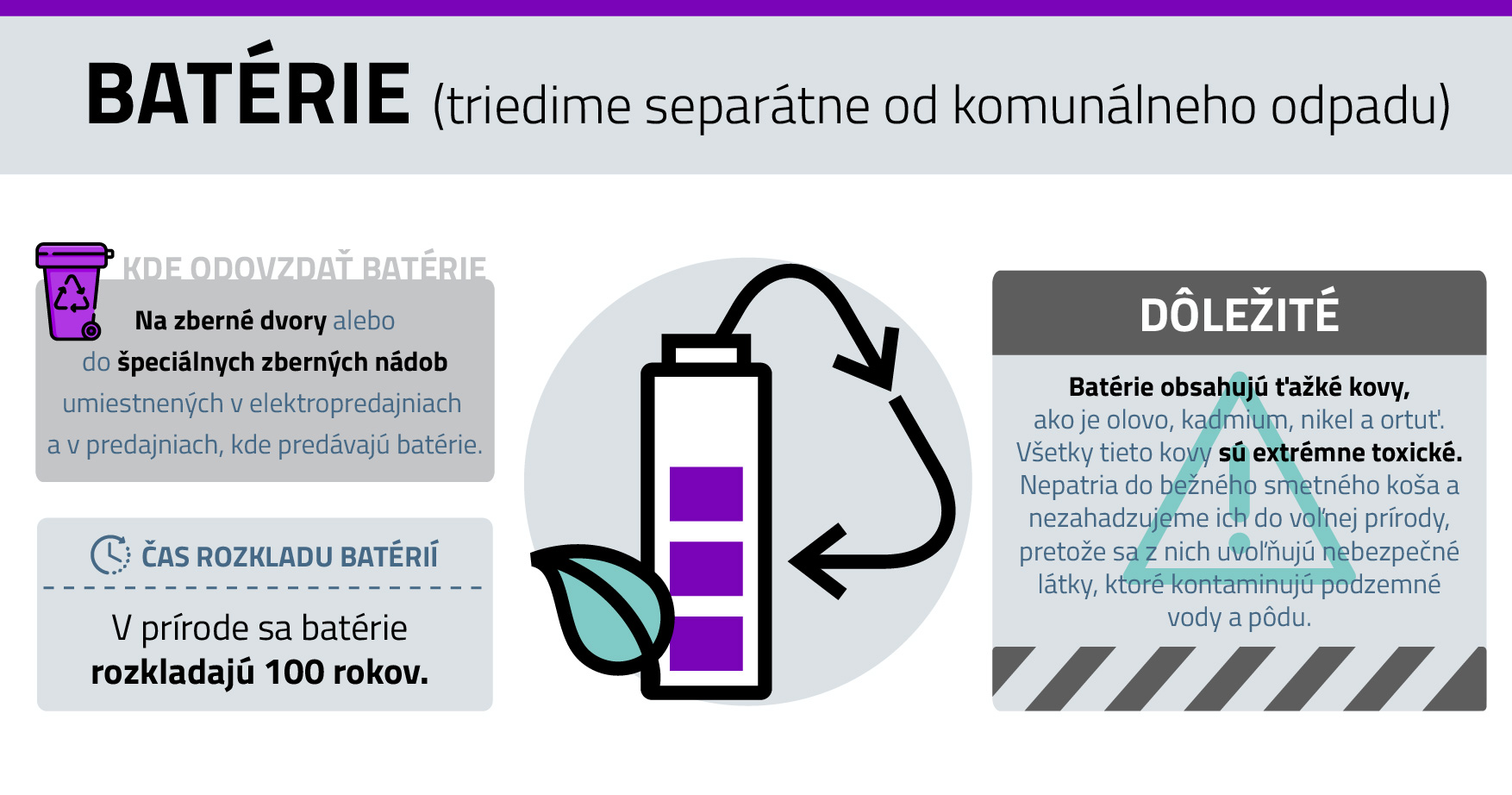
Plastics
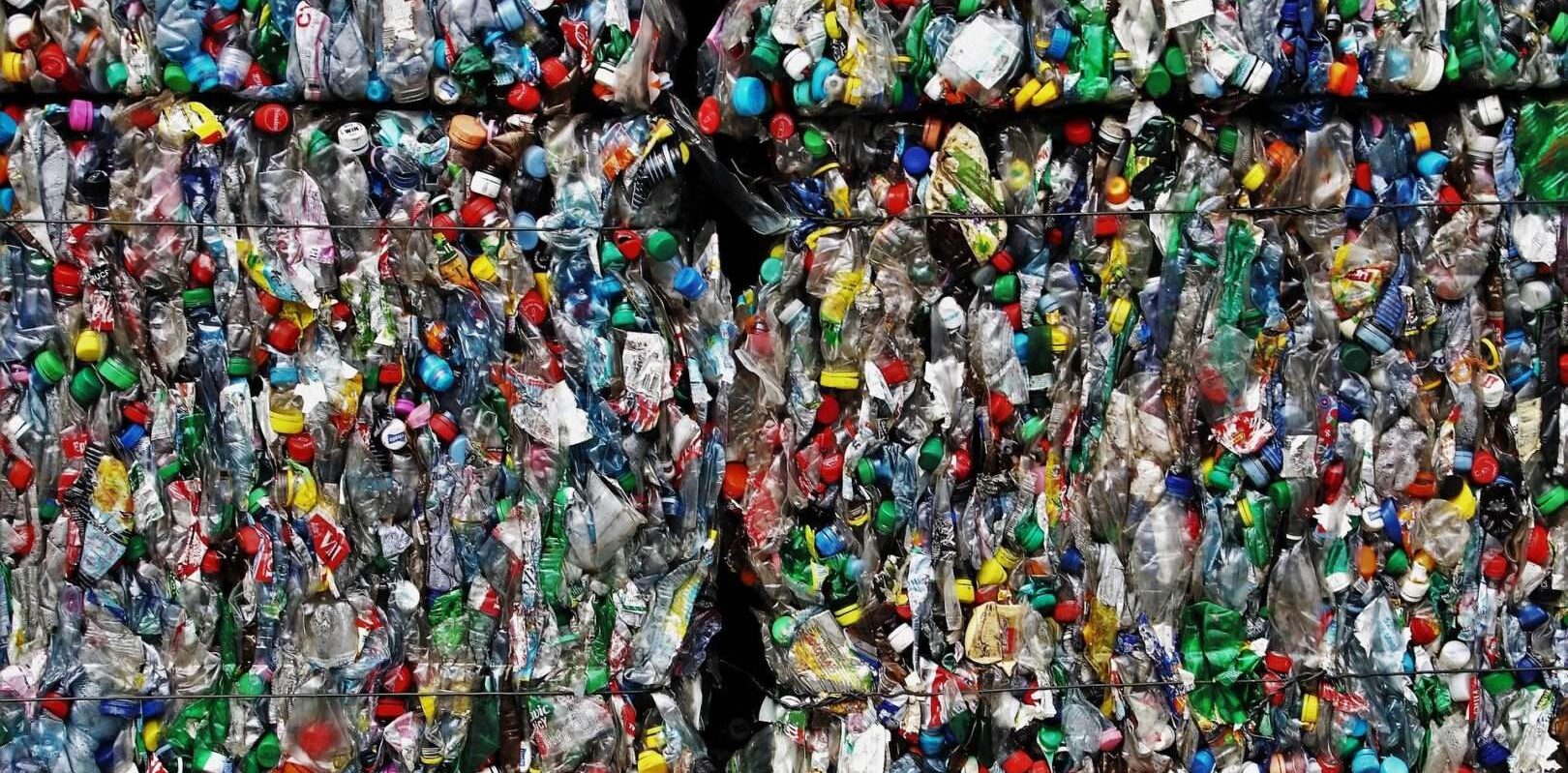
Plastics are made from petroleum and are the most common household waste. From January 1, 2022, plastic and metal packaging for drinks will be subject to a charge of EUR 0.15.
Pplastic beverage packaging are marked with a backup sign – a capital letter Z in arrows. Such packaging must be returned to the store, where the deposit will be returned to the customer, or will deduct it from the purchase. The packaging must not be crushed/stepped on so that the code on the label can be read and returned to the system and the deposit returned.
The amount on the merchant’s price tag is shown without a deposit of EUR 0.15, which will be added only at the time of payment.
Another plastic packaging from food or drinks (without a sign letter “Z”) can be stepped on and thrown into the yellow plastic containers.
The best way to prevent waste is to limit the use of single-use plastic packaging and bags and to limit the purchase of drinks in plastic and metal bottles.
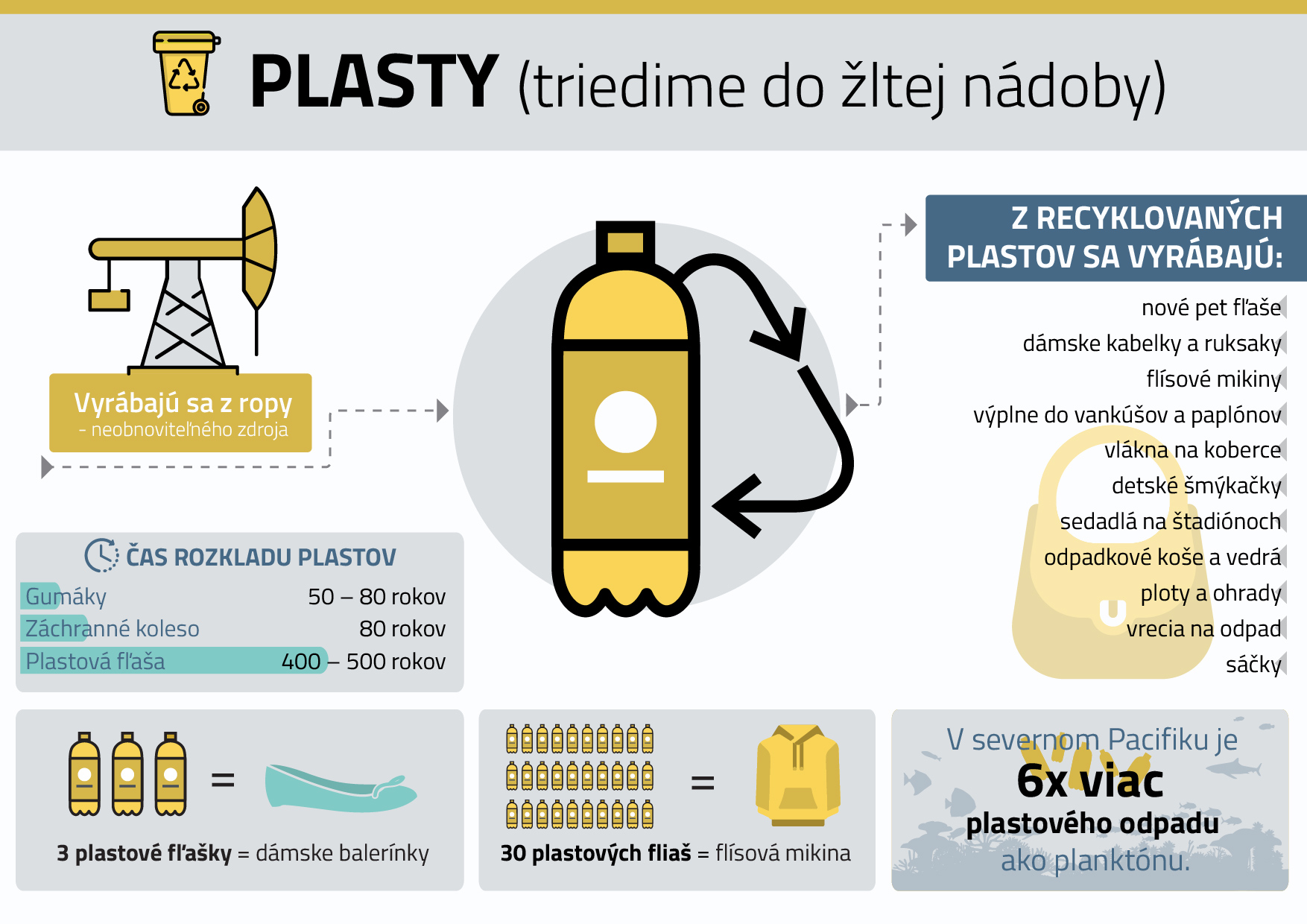
Paper
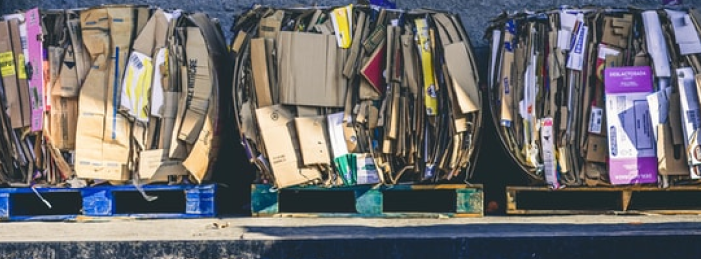
Paper can be recycled 6-7 times (depending on its quality). The thin fibers that make up paper are shortened each time they are recycled, reducing their quality and the possibility of repeated recycling.
Cardboard boxes need to be flattened before throwing them out so that the capacity of the container for sorted collection is used to the maximum.
The blue container does not include beverage cartons (they are collected together with plastic waste), used diapers, hygiene items, greasy paper and hardcover books.
About 17 trees are needed to produce 1 ton of paper.
Residents do not pay for the collection and recycling of sorted waste, they are financed and provided by producers of reserved products.

Glass
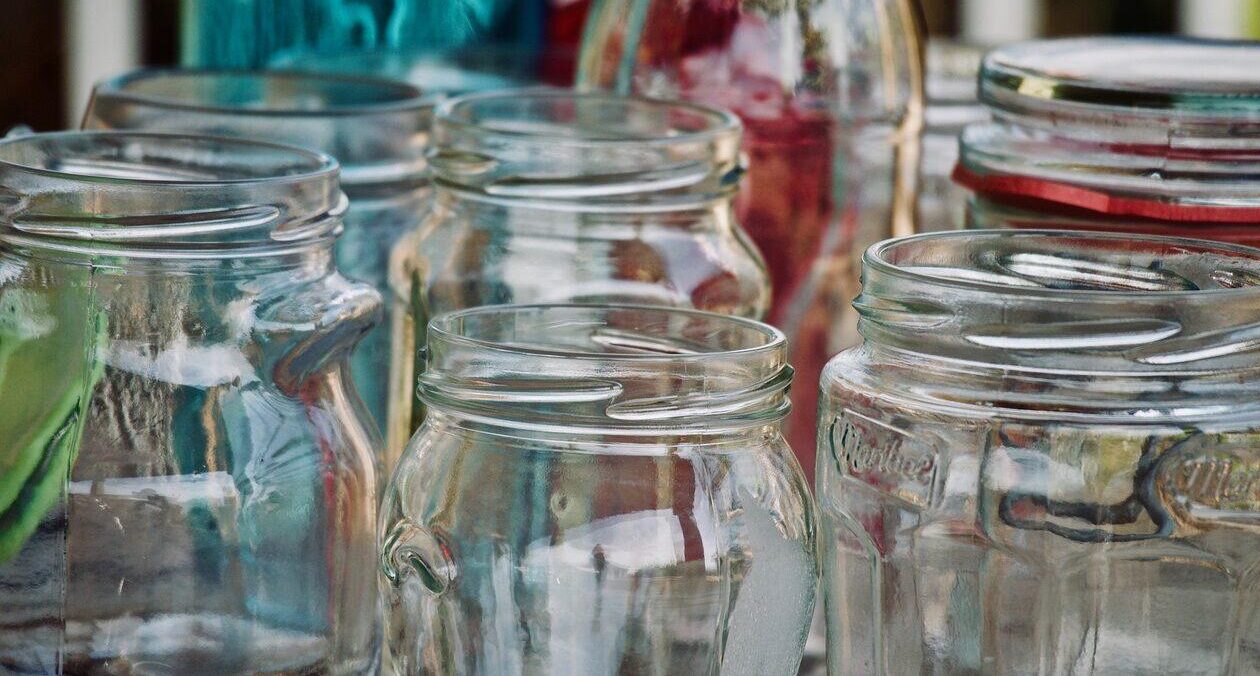
Glass can be recycled indefinitely. Many glass products can thus be used repeatedly.
Glass waste belongs in green collection containers. Before throwing away, however, it is necessary to remove food residues from the packaging.
The green container includes glass packaging for drinks or food, shards and glasses. Excludes: ceramics, porcelain, fluorescent lamps, light bulbs, auto glass and mirrors.
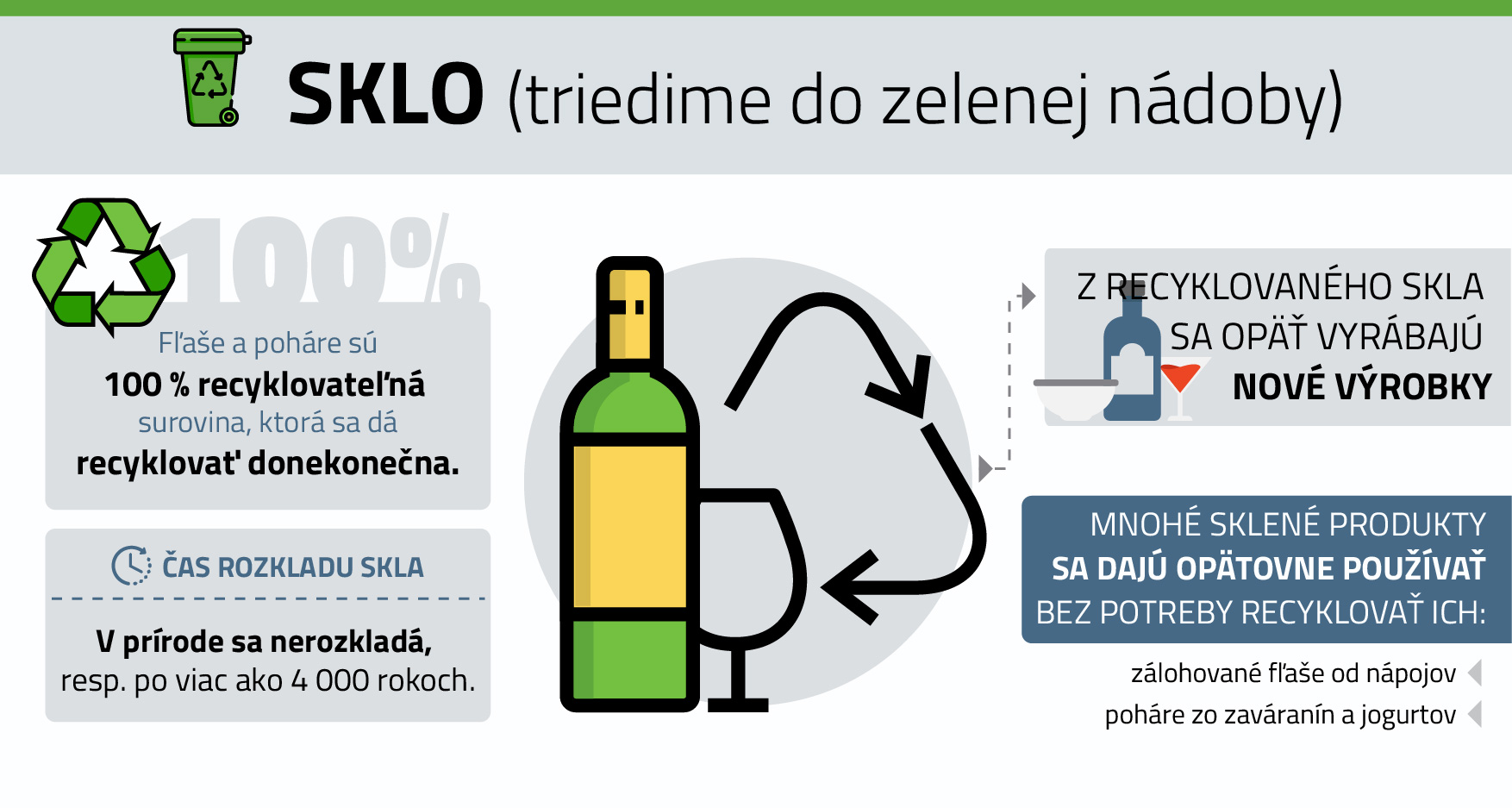
Metals
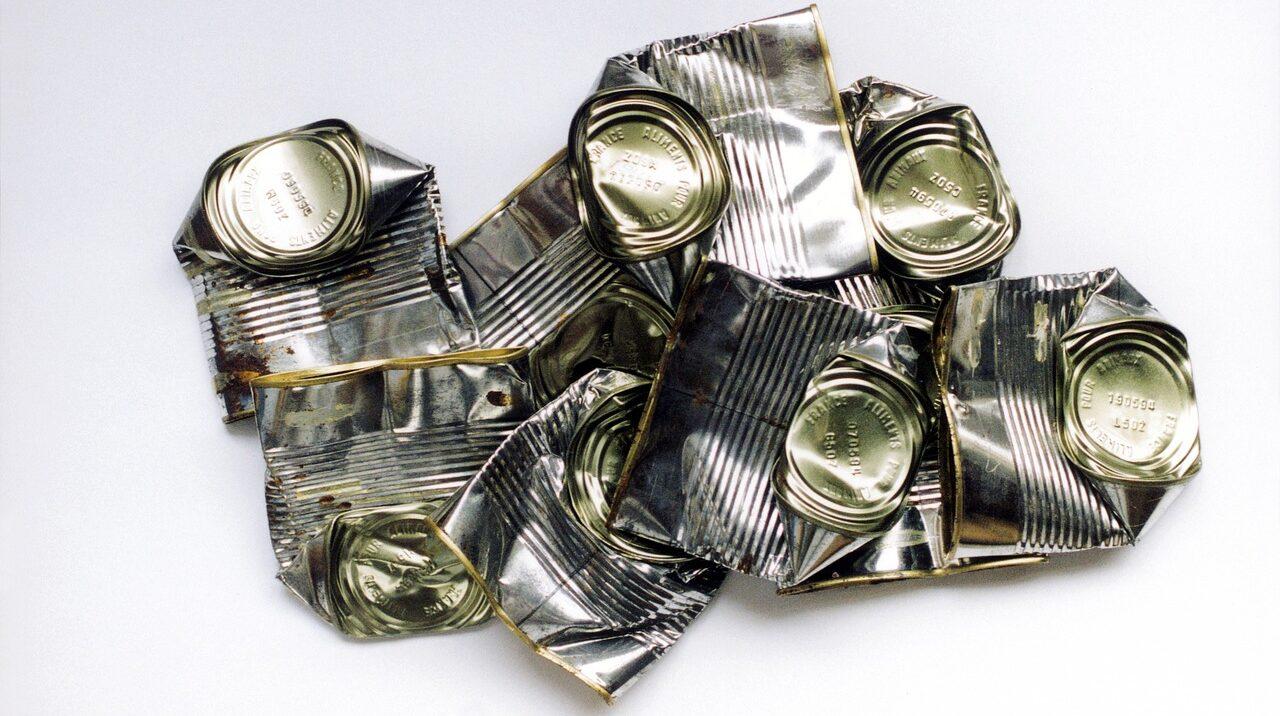
Metals can be recycled almost indefinitely.
Metals belong in red collection containers, or they can be collected in combination with plastics and/or with multi-layer combined materials (so-called VKM). Follow the instructions on the labels on the collection containers or ask your local authority.
